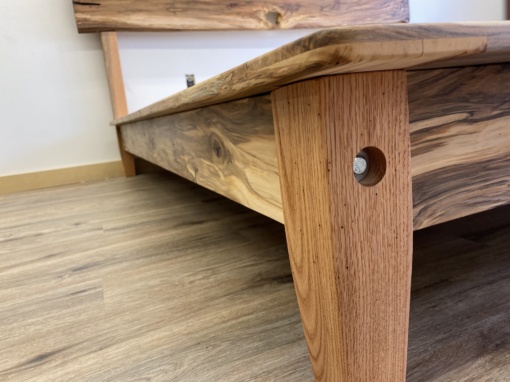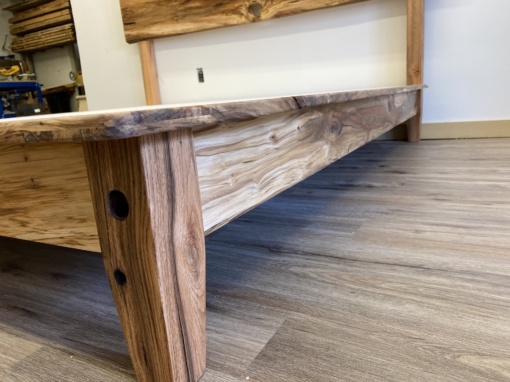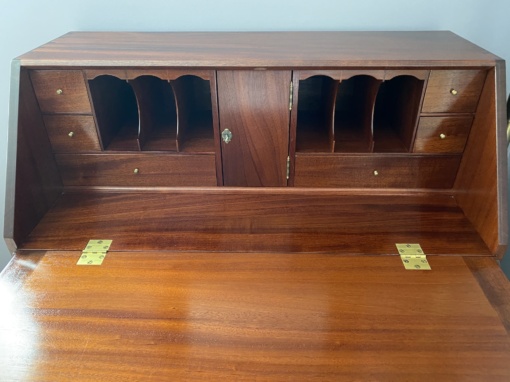Whether you’re taking care of aging parents in your own home, or tending to their needs remotely, your world is likely full of stress, concern and constant
 |
change. “This is called the Longevity Revolution,” says Gloria B. Barsamian, author of Sustenance and Hope for Caregivers of Elderly Parents (Praeger, 2009). “Baby Boomers can be caring for two or three generations at once: their parents, spouse, and often their in-laws or grandchildren.” As concerns increase about an elderly parent’s safety, capability to care for themselves, and loneliness, here are some home renovations –- big and small — to consider if your aging parent is staying in their home, or yours.
Bathroom Needs:
- Full bathroom with shower on first floor.
- Install sturdy railings and hand-towels for steadying themselves throughout room.
- Remove bath rugs to prevent trips. If floor is too slippery and too costly to replace, an Oriental rug might lay flat enough, but is not likely to work if your parent is in a wheelchair.
- Add a hand-held sprayer to the shower that will spray all hard to reach areas.
- Add non-stick features to the shower stall or tub.
- Place a bench in the shower.
- Find an arm-level drawer system to place everyday items so reaching and bending is not a burden.
- If renovating, make sure the shower is large enough for the possibility of an aid assisting with this task.
- If renovating, add non-slip tile floors.
- Ensure entry way is wide enough for an eventual wheelchair or walker.
- Add extra fixed lighting or higher watt bulbs. This will help locate dropped items. Lamps are too unsteady and might mistakenly be used for support.
- If installing a new toilet, consider an automatic flush. Be sure to add a toilet seat that is easy to reach in the event of needing a walker or a wheelchair.
General Home Needs:
- Make sure bedroom and full bathroom are on the first floor to limit stair climbing.
- Lock or block off doors to basement to prevent falls in the middle of the night.
- Place laundry system on first floor for easy access.
- Install fixed, high-wattage lighting throughout house to help see more clearly and find dropped items.
- Change doorknobs and handles to a more easily gripped knob.
- Place the microwave and everyday cooking items at waist level to prevent high reaching and low bending.
- If in a wheelchair, create a low table or counter area where your parent can prepare meals.
- Stove knobs should be in front of the range to prevent reaching over an open flame. If parent has dementia, disable knobs and encourage microwave meals or a service that provides in-home meal prep.
- Consider adding wall-to-wall flat-pile commercial carpeting throughout the home for the best non-slip surface.
- If climbing stairs is necessary, add wall rails for extra support.
- Consider a ramp or an additional hand rail if there are entryway stairs. One possibility is adding a ramp inside the garage, if the garage is attached to the house.
- Look into a wearable device that the parent can quickly call for help if there is an emergency.
- Add an adaptable phone plug for hearing impaired phones. Call the telephone company to get one installed.
- Set up the computer to read emails and documents aloud, for the visually impaired.
- Place a bulletin board and large calendar in an area such as the kitchen, where your parent is most likely to go every day. Set it up with important phone numbers as well as dates and times of appointments and visitors.
- If living alone, have someone check in once a day. And make sure someone calls every day.
Additional Tips if Moving to Your House:
- Try to create a separate space where your parent can feel the most at home. A finished basement or area with its own entrance would be best.
- Add a kitchenette that includes a small refrigerator, microwave and a table.
- Make sure there is a separate TV so your parent doesn’t have to fight for the remote with your kids.
- Continue to have people check in on your parent and call, if your family is out of the house during the day. Loneliness is still an issue.
- Create a weekly event, like a Sunday dinner, when your parent can see everyone.
Unfortunately, there is no federal grant to help pay the often-huge expenses of a renovation for elder care. Barsamian suggests calling your state’s Office of Elder Affairs or Senior Citizens Hotline for assistance in your community. Another great resource are senior homes that provide a day care-type service, where your parent can go to interact, attend seminars and play games with other seniors, however they often come at a price as well. Look into discounts with Medicare, Medicaid, and organizations like the AARP or veterans associations. If you do decide to provide care within your house, you are likely eligible for a tax credit.
“This is a difficult time for everyone involved,” Barsamian reminds. “With so many people to take care of, it puts caretakers at risk for a lot of stress.” She suggests making time for yourself with relaxation classes or techniques. And remember, you’re not in this alone. “Presently 50 million people are finding themselves in a caregiving role,” she notes. Look for support groups or online resources such as on CareGiverSupportNetwork.com and Caregiver.com, which also have local guidance for saving money on products and medical expenses.
Get more information on making a home accessible to special needs.





























Bookmarking this for future applications. More accessibility is needed in housing and in public.